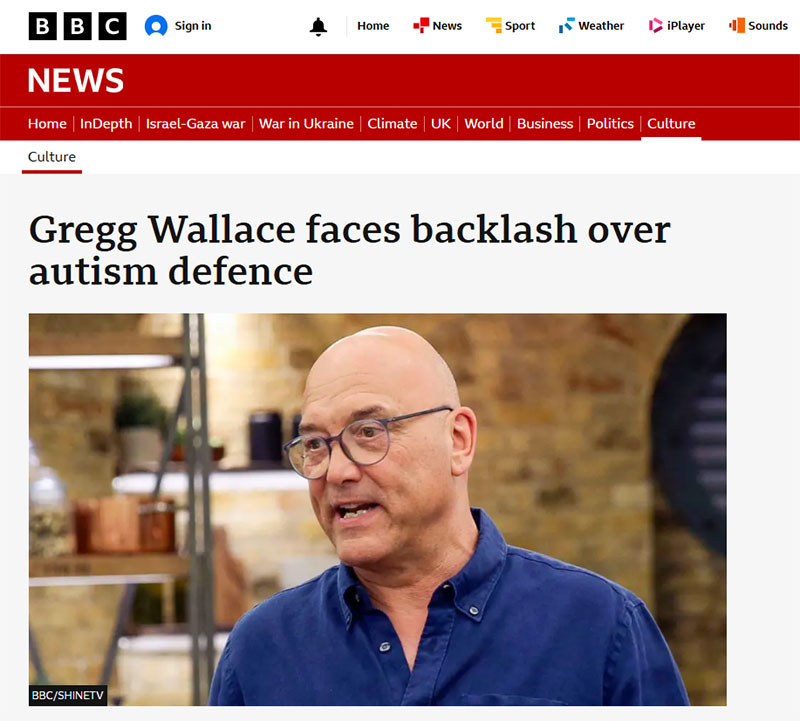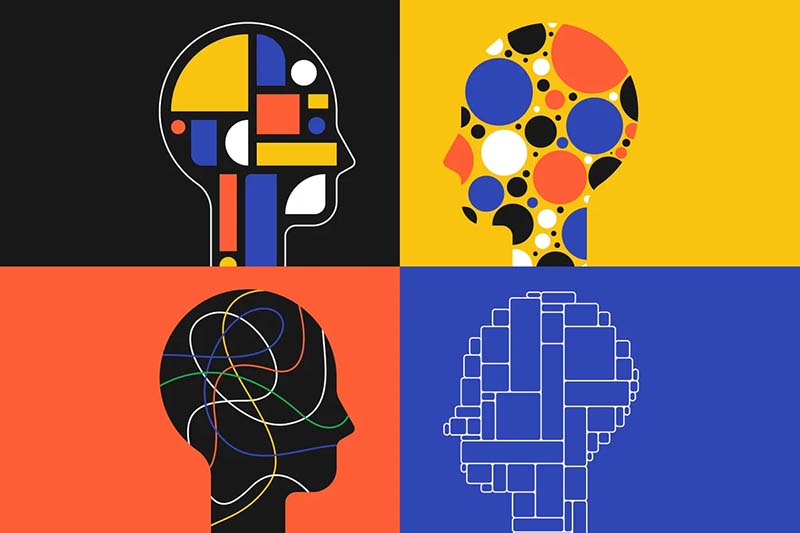Can autism be a cause of criminal acts and bad behaviour?

by John Nelson
Chair | National Police Autism Association
In June 2020, autism featured in a widely-reported criminal case. Jonty Bravery, an autistic teenager, was sentenced to life imprisonment at the Old Bailey following an incident the previous year in which he had dropped a six year old boy from the viewing platform at the Tate Modern gallery. The victim survived but suffered life-changing injuries.
The court was told that Bravery’s autism – a central part of his medical profile – did not explain his actions, and that the attack was premeditated. Bravery, who was aged 17 at the time of the offence but tried as an adult, had admitted attempted murder at an earlier hearing and was sentenced to a minimum term of 15 years. The judge warned that he may never be deemed fit for release.
Five years later, autism was in the news again for the wrong reasons. TV presenter and celebrity Gregg Wallace was sacked by the BBC following an inquiry into his alleged misconduct whilst hosting the long-running reality cookery show MasterChef. In response, Wallace publicly shared his recent autism diagnosis, and claimed that his employer had failed to investigate his disability or to ‘protect’ him from what he described as a ‘dangerous environment’.
Any autistic person reading these and similar stories would probably feel a sense of despair at autism being linked to – if not blamed for – someone’s wrongdoing. But is there any truth in the conclusion that a casual reader might arrive at – that autism causes people to behave badly?
The short answer (spoiler alert) is No. But, as with anyone, autistic people can fall foul of the law and what would commonly be regarded as ‘acceptable behaviour’ – and autism can sometimes play a part in this.
The first point to make is that autistic people are no more likely to commit criminal acts than the general population. There is, on the other hand, evidence that autistic people are more likely to fall victim to crime and bullying, including so-called mate crime. Autism makes you more likely to be a victim rather than an offender. It doesn’t help that the media tends to give more prominence to stories involving an autistic offender than an autistic victim, or that many crimes against autistic and disabled people go unreported.
In cases where an autistic person has committed a crime, there is a very high bar to be met in a court of law for a person to be found not responsible for their actions due to their autism. All police officers will be familiar with the concept of mens rea (literal translation ‘guilty mind’) – the defendant’s knowledge that they were committing a crime, intending to commit a crime or being reckless as to whether a crime would arise from their actions. For an autistic person to genuinely not understand the difference between right and wrong, they would typically have a co-morbid (co-occurring) profound learning disability or a severe mental illness. In the vast majority of criminal cases involving autistic defendants, it was held that the defendant understood the concept of a criminal act, and could therefore be held to account for their actions. This was the judge’s finding in the Bravery case.
Aside from rare examples of serious crime, autistic poeple can easily find themselves being judged adversely by other individuals and the general public in day-to-day life. (The social model of disability proposes that it is societal attitudes towards conditions such as autism that are disabling, rather than the condition itself.) Outside of the law, ‘bad’ behaviour can be a highly subjective concept and forms a large grey area dependent on how a person’s autism affects them (differently in every case, hence the saying ‘if you’ve met one autistic person, you’ve met one autistic person’), the nature and context of what took place, and the views of others involved or affected.
It’s well-known that autistic people tend to struggle with social communication – or rather communicating in a way that the majority of the population sees as normal and acceptable. (Difficulties with social interaction form part of the dyad of impairments required for an autism diagnosis.) Every autistic person will be able to give examples of social faux pas that they’d rather forget: giving honest opinions that were not appreciated, providing answers to questions that were too short (or too long), or making a French exit from a social gathering that was becoming overwhelming. Over time, these ‘social errors’ – trivial as they are – can lead to a person being labelled as rude, stand-offish, ‘not a team player’ (if noted in a work context), and sometimes socially excluded as a result.
But is it fair to criticise someone merely for failing to communicate in a way that the majority of the population expects – especially if there is clearly no malice involved? This has been neatly described as the double empathy problem: a theory proposing that communication between autistic and non-autistic people is a two-way street, rather than the autistic person being judged on their ability to communicate effectively, and that both sides need to be aware of the expectations of the other party.
Sometimes, through no fault of their own, an autistic person can behave in a way that is upsetting or offensive to others. First responders dealing with autistic people in emergency situations need to be aware of autistic meltdown, where an autistic person may become so overwhelmed by a situation and external stimuli that they involuntarily lash out, verbally or physically. This can lead to criminal allegations, for example if someone is assaulted or property is damaged. Some autistic people engage in stimming – self-stimulating or self-regulating behaviour such as vocalising or hand flapping – which may lead to complaints in some settings. In the event of police becoming involved, it is vital that officers are aware that the person is autistic and how their autism affects them, and understand options for de-escalation and exercise of discretion when dealing with allegations arising from their behaviour. For this reason the NPAA champions measures such as alert card schemes and wristbands, and training for police colleagues coming into contact with autistic people. (We are pleased to include on our website the first responder meltdown guide developed by autism advocate Viv Dawes.)
In 1943, the American psychologist Abraham Maslow proposed the now well-known hierarchy of needs as a means of understanding human motivation. Maslow suggested that second only to basic physical needs (food, shelter and safety) is the need for belonging and acceptance. Most of us with friends, family and social networks take this for granted, but those who speak a different social language are often keenly aware when it is not fulfilled. Sometimes an autistic person’s efforts to fit in and be accepted can cross the line into unacceptable behaviour – for example, joining in with inappropriate ‘banter’ in the workplace. (This can be exacerbated by the tendency of some autistic people – especially females – to subconsciously mask their autism by mirroring the social cues of those around them.) The vast majority of law-abiding autistic people would agree that although we struggle and sometimes make mistakes, autism is not a ‘get out of jail free’ card, and that we should all do our best to avoid upsetting others and to stay within the law. This is why Gregg Wallace raising his autism diagnosis as a defence against alleged misconduct – which took place over a long period of time, and in the context of him occupying a position of privilege and power – drew the ire of disability charities.
Ultimately, our journey through life throws up regular challenges and pitfalls for those of us with brains that work differently to the majority of the population, regardless of our social standing or professional vocation. We are all better or worse at navigating a world that is sometimes confusing, unforgiving and hostile. Social media, and the willingness of senior colleagues and public figures to talk openly about their neurodivergence in a positive way, has done much in recent years to break down stigma and increase understanding of autism and neurodiversity; my hope is that the social minefield gives way to a culture of ‘universal empathy’ where everyone, regardless of difference, can be accepted and understood. ∎



